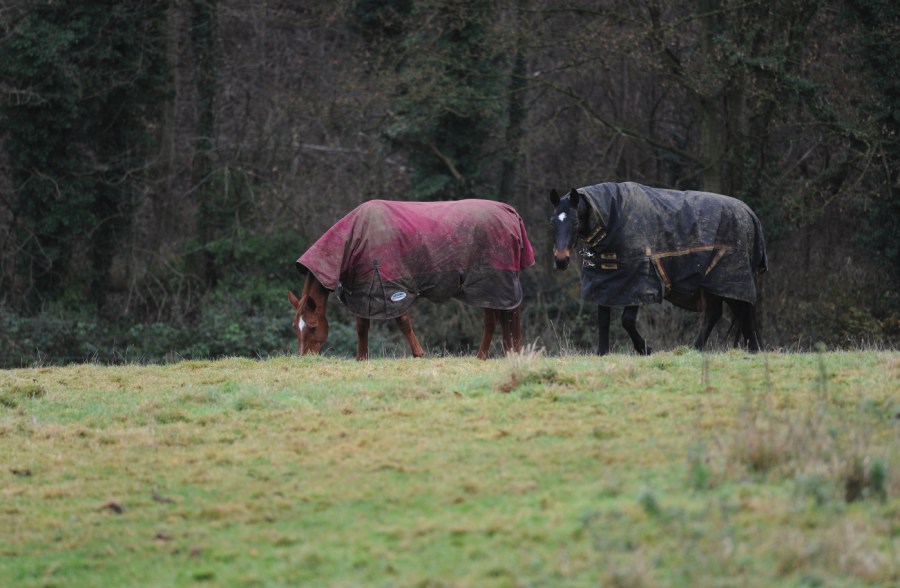The more relaxed a horse is the better it is at learning new tasks, a new study has revealed. Equine scientists at Nottingham Trent University wanted to see how the level of arousal in horses – the extent to which they might be excited or stressed, for instance – affected their performance in a cognitive task.
The researchers measured physiological markers of arousal including heart rate variability and eye temperature while the horses were resting and again during learning. As part of the study a group of 20 horses were given a choice of two targets, with the correct one resulting in a food reward.
Once the horses had learned to select the correct target, the researchers ‘reversed’ the task so that the horses had to select the opposite target for reward.
Horses that had lower arousal both at rest and during learning performed significantly better in the cognitive challenge, the team found.
Horses that did best in the task also showed an increase in left eye temperature and this was a significant predictor of performance.
The researchers suggest that the left eye temperature may have increased as a result of increased blood flow to the left hemisphere of the brain.
The left hemisphere is responsible for learning targeted responses to stimuli and feeding behaviour, both of which were integral to the challenge.
Blink rate was also measured but did not appear to influence how well horses did in the task, despite being linked to dopamine – an important neurotransmitter for learning – in animals and humans.
The team argues that, as well as revealing that horses which are more relaxed perform better at tasks, their study demonstrates the use of physiological markers to predict how individual horses might learn.
“We regularly expect domesticated horses to learn different and complex behavioural responses as part of their working roles,” said lead researcher Louise Evans, from Nottingham Trent University’s School of Animal, Rural and Environmental Sciences.
“In their day-to-day lives, horses require behavioural flexibility, the ability to adapt to changing environments, such as different riders and handlers. However, we also need horses to have excellent cognitive control so that we can safely rely on them to give consistent responses to important commands such as “slow down” or “stop”.
“This delicate balance between flexibility and control is what makes horses such good teammates. However, when things go wrong there can be dangerous consequences, so it’s vital that we understand how horses learn and can better predict their learning performance.
“This study has really helped aid our understanding to predict how well individual horses learn – and more relaxed horses clearly learn better. It’s important for us to recognise the impact that arousal in the home or training environment can have on horses’ learning.
“What’s also fascinating is that we may have found evidence of left brain hemisphere activity by measuring eye temperature differences during learning.
“This requires further investigation but, if a link can be demonstrated, this means we can for the first time measure hemispheric activity non-invasively and in real-time.”
The study, which also involved a researcher from the University of Central Lancashire’s School of Veterinary Medicine, is published in the journal Applied Animal and Behaviour Science.









